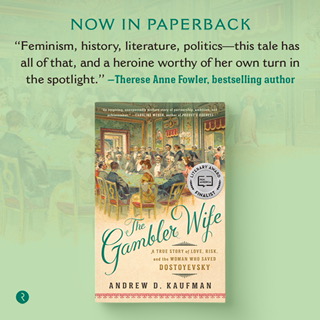Give Change A Chance: How To Grow From Life’s Challenges
Time For Change
When I was in the theater world, we used to perform this improv game where, in the middle of a scene, the director would shout from the side of the stage: “Make a new choice!”
If I’d been a lumberjack chopping down a tree, now I was a terrorist felling a television tower. If I’d just confessed my love to my paramour, now I confessed my hate. Without missing a beat, the scene would continue with this entirely new set of assumptions. I never knew when the director was going to shout out, so I had to be ready to turn on a dime, instantaneously come up with something new, and commit to it fully.
It was unnerving and exhilarating. I had to embrace chaos and plunge into the unknown. I needed to trust my scene partner, my own imagination, and the creative gods. I had to give up control. For these reasons, I hated improv and loved it at the same time.
It was a whole life education for me and a metaphor for an unfamiliar way of being in the world: utterly spontaneous, present, and trusting.
The past couple of years chock full of political and social trauma have given many of us a similar life education. Familiar routines interrupted, old paradigms uprooted, our world has become a giant if not-so-entertaining improv game, with some voice whispering (or shouting) in our ear, “Make a new choice!”
Making New Choices
In December of last year, I listened to that voice when, after seventeen years, I left my position at the University of Virginia.
Unlike an improv game, this wasn’t a split-second decision. It had been a long time coming. In 2018, my dad suddenly passed away after a tragic fall. Six months later, I turned fifty. A year after that, COVID hit. Then my hip arthritis had gotten so severe I could no longer walk.
These wake-up calls forced me to revisit my priorities. I realized that I’d been trying to squeeze the things that truly mattered to me—quality time with family and friends, mental, spiritual, and physical well-being, writing, and other creative pursuits—in between the things that didn’t: meetings, reports that never got read, plans that got caught up in bureaucratic dysfunction, politicking, precious energy spent fulfilling other peoples’ agendas.
Only teaching mattered to me.
Sure, I was still doing good work and getting good reviews. In society’s eyes, I was doing just fine. And I was pretty secure. But security and fulfillment are not the same thing, something I’ve also keenly observed while teaching in prisons.
Adjusting To Change
Admittedly, the transition to a new life was difficult at first. I’d grown so used to the stresses and pressures of busyness that their sudden absence unnerved me. I was like an addict going through withdrawal. I had more free time, but no ready-made compulsions to fill it with.
So I learned to sit quietly and uncomfortably in those empty spaces. Meditation and self-hypnosis helped a lot. So did a supportive wife, as well as young boys who appreciated seeing their dad a little less stressed out all the time. Eventually, the discomfort subsided, and in its place, fresh ideas and insights started percolating. Young creative seeds found fertile, better-nourished ground in which to grow.
Nearly nine months later, the first shoots are starting to appear.
New Projects
A year before I left UVa my ten-year-old son, Ian, made me promise that my next book after The Gambler Wife would be not about Russian literature, but a children’s book for him and his younger brother, Evan. What appeared a distant dream at the time has since become a tangible reality and a promise I am keeping. I’m well into the story about an awkward boy with a great power that he (and his society) mistake for a terrible curse.
A few months ago I also was inspired to start a new class on Dostoyevsky’s novel, Crime and Punishment, with inmates at the regional jail. Previously while at UVa, I taught Books Behind Bars, which brought together undergraduate students and incarcerated students to explore questions of meaning, value, and social justice. By design, I was more of a facilitator, a guide on the side.
Now I am a full participant in these conversations. Teaching in prison has once again become new for me, Dostoyevsky’s novel utterly fresh. And I’m becoming a different kind of teacher.
Giving Permission To Change
I’ve given myself permission to be more vulnerable and fully human in the classroom. I relay personal stories I never before would have felt comfortable sharing in public. I listen better with my heart as well as my head. I didn’t try to hide my tears the other day, as I once might have, when Lakori, a 21-year-old inmate charged with second-degree murder, shared that his only joy now in life is those few minutes each month he gets to talk to his three-year-old boy through plexiglass.
As a father, that hit me hard. I cried for Lakori, for his little boy, for my little boys, for the family of the person he allegedly killed, and for all the pain and trauma in that classroom and in our world.
The purpose of this new class is, as I state in the syllabus, to “join Dostoyevsky and his characters on a journey to the depths of our shared humanity.” And what a journey it’s been for all of us.
In the fall I will be teaching Crime and Punishment to prosecutors, defense attorneys, and police officers. In future posts, I look forward to sharing more about the impact reading Crime and Punishment is having on all of us, and I hope that you, too, will pick up a copy of Dostoyevsky’s great novel and join us on that journey.
For the journey is all we really have. Life isn’t a fast elevator shooting us up to the top floor, but a continuous river of individual moments flowing endlessly into one another. Each one of those moments is rich with possibility, each an opportunity to make a new choice.
***
Connect with Dr. Kaufman on Amazon, Twitter, Facebook, his private FB Group, Linked In, Instagram, Goodreads, and YouTube, and sign up for his newsletter here.
Follow Books Behind Bars on Twitter and Facebook.
Order The Gambler Wife: A True Story of Love, Risk, and the Woman Who Saved Dostoyevsky
A PEN/America finalist, now optioned for film!


Andrew, been following you along over these years. Admire your extraordinary talents. Reading your comments have profoundly changed and added to my thinking, actions for my reinvention.
Liz
Liz@decliffordconsulting.com
Cell 1310 913 0895
So glad you found this blog, Liz. You are yourself an incredible, inspirational speaker. I still remember a dramatic speech you gave once in San Francisco about being a British girl during Hitler’s Blitzkrieg in World War II. Let’s keep reinventing ourselves for the better, ok?